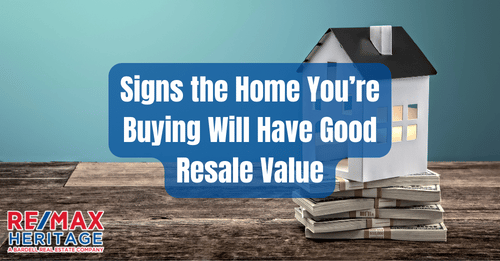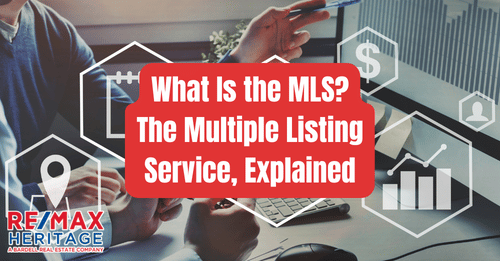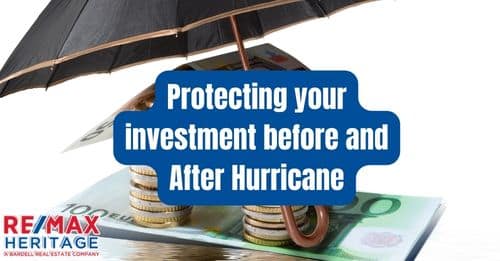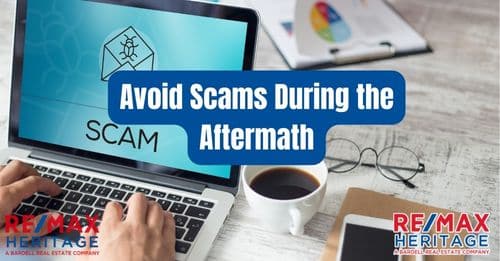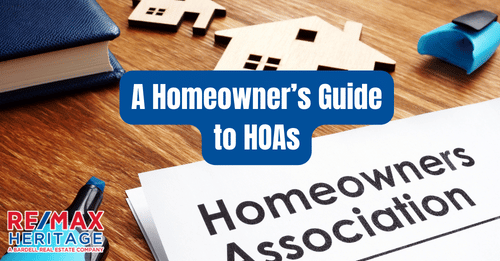
A Homeowner’s Guide to HOAs
A Homeowner’s Guide to HOAs

A Homeowner’s Guide to HOAs
Many homes across the United States are part of an HOA, or homeowners association. So what does that mean?
The number of Americans living in homes with HOAs is on the rise, growing from a mere 1% in 1970 to 27% today, according to a recent National and State Statistical Review for Community Association Data.
Is buying a home with an HOA right for you? We’ll help you decide by laying out the pros, cons, and costs of an HOA.
What is a homeowners association?
Let’s say, for instance, that the pump in the community swimming pool stops working. Someone has to take care of it before the water turns green and toxic, right? Rather than expect any one homeowner in the neighborhood to volunteer his time and money to fix the problem, homeowners associations are responsible for getting the job done.
You can think of the purpose of an HOA as similar to real estate property taxes that a homeowner pays for city and state services—except that in this case, these fees go to pay for amenities and maintenance in your own community or condo building.
How much are HOA fees?
To cover these property maintenance expenses and repairs, homeowners associations collect fees or dues (monthly or yearly) from all community members. For a typical single-family home, HOA fees will cost homeowners around $200 to $300 per month.
HOA fees can be lower or much higher depending on the size of your house or condominium and the services provided. The larger the homeowner area, the higher the HOA fee—which makes sense, because the family of four homeowners in a three-bedroom condominium is probably going to be using the common facilities more than a single resident living in a studio condo.
Many HOAs pay property managers to oversee maintenance and deal with other real estate–related property issues. HOA fees might also include insurance payments to cover common areas.
HOA fees are usually divided into two parts: One portion goes toward monthly expenses, and the remaining money goes into a reserve fund. This reserve fund serves as a safety net, to be tapped for emergency expenses that arise when natural disasters or vandals strike—or just the unavoidable wear and tear. They’re also used to cover long-term repairs and replacements such as roofs, plumbing, and exterior paint.
It’s important to note that HOA fees do not cover property taxes. And taxes are not necessarily lower on a condo compared to a house.
What is an assessment?
Be aware that when your community is hit with extreme maintenance expenses—like a flood in the underground parking lot due to a broken water heater or a pipe bursting—homeowner insurance will cover some of it, but whatever’s left will have to be paid by your HOA.
Typically in these cases, the HOA will tap the reserve fund, which may become depleted as a result. Or the association may not have enough in reserve to cover necessary expenses. In either case, your HOA board may require you and your fellow homeowners in the community to pay a special assessment bill above and beyond your monthly HOA fee.
For example, if the elevator in your condo building goes out and it’s going to cost $15,000 to replace it—but the HOA reserve account holds only $12,000—you and the rest of the residents are going to have to pony up at least an additional $3,000 in dues, divided among you, to make up the difference. And yes, you as a resident still have to contribute your share of dues, even if your property is on the first floor.
Luckily, though, these assessments are typically temporary until the reserve is back up to a comfortable level.
HOA rules: What to expect
All HOAs have boards made up of homeowners in the complex who are typically elected by all homeowners. These board members will set up regular meetings where owners can gather and discuss major decisions and issues with their community. For major expenditures, all members of the HOA usually vote, not just members of the board.
In addition to management of the common areas, homeowners associations are also responsible for seeing that its community members follow certain rules and restrictions. These rules will be spelled out in the covenants, conditions, and restrictions, or CC&Rs.
What are CC&Rs? Common restrictive covenants
Simply put, CC&Rs are just the rules you’ll have to follow if you live in that community. Unlike zoning regulations, which are government-imposed requirements on how land can be used, restrictive covenants are established by HOAs to maintain the attractiveness and value of the property.
Restrictive covenants differ from community to community, but there are some you can expect to see:
- Permissible colors for exterior house paint
- Minimum property and landscaping standards
- Types of fencing allowed
- Types of window treatments allowed
- Limitations on the type of security lights you can attach to the house
- Controls on installing sporting equipment such as a basketball hoop in the driveway
- Restrictions that limit vehicle storage or recreational vehicle parking
- Curbs on property uses that generate noise or smells (e.g., raising livestock)
- Rules on commercial or business uses of land reserved for residences
When to review your CC&Rs
After your offer to buy a home is accepted, you are legally entitled to receive and review the community’s CC&Rs over a certain number of days (typically between three and 10). Warning: Some CC&Rs can be hundreds of pages, but given these are the laws you’ll have to abide by, this is required reading that you skip at your own peril.
If you spot anything in the restrictive covenants you absolutely can’t live with, you can bring it up with the HOA board or just back out of your contract completely (and keep your deposit). It may seem extreme, but if this is the place you hope to call home, living with rules that seriously cramp your style may just not be worth the trouble.
Can you change restrictive covenants?
Restrictive covenants, however, aren’t set in stone. They can be contested and changed with a majority vote of the shareholders, aka neighbors in your development. This can work for or against you depending on where you stand.
Bruce Ailion, says he has seen neighborhoods tighten regulations by issuing fines for cars parked in the streets, bicycles left outside the garage, nonstandard mailboxes, and other potentially petty problems.
“Yes, restrictive covenants keep the appearance of the property up and can prevent eyesores such as wrecked cars, unkempt lawns, and oddball home colors,” Ailion says. But he admits there are times when CC&Rs can be so restrictive that they start infringing on the rights of their residents.
But even in that case, there are things you can do. In January 2016, for instance, when an HOA in Keizer, OR, wouldn’t allow a family to park their RV in their driveway—a necessity for their disabled child—the family fought back with a lawsuit (and won), arguing that the Fair Housing Act requires HOAs to make “reasonable accommodations” for people with disabilities.
The bottom line: Restrictive covenants are meant to protect residents, but they can be changed if they’re out of line.
What happens if you violate HOA rules or can’t pay your HOA fees?
First off, rest assured that most lending institutions take the HOA fee into consideration when they write up your mortgage. In other words, they evaluate your monthly income compared with your monthly expenses, and they won’t make a loan on the desired property unless they feel you can safely cover everything: your mortgage payment, taxes, and HOA fees.
But life happens. If you lose your job or are unable to pay your HOA fees, you might be able to work something out with the HOA board. Be sure to talk to the board before you miss even one payment.
If you break your HOA’s rules, the consequences could be severe, and potentially, HOA management could evict you from your property. Fall too far behind on paying HOA fees, and the penalty could be the same as if you fail to make your mortgage payments.
Bob Tankel, a Florida attorney specializing in HOA law, says the board may have the right to foreclose on your property.
Pros and cons of an HOA
Home shoppers weigh a laundry list of factors before purchasing a home. Location, price, size, and style are all taken into consideration. But for some, a home in a community with a homeowners association could either sweeten the pot or be a major deal breaker.
“I have had clients who specifically want this type of situation, and others who refuse to buy in a community that has one,” says Bill Golden.
Want to know what makes buyers swing one way or the other? The following insights will illustrate the best and worst qualities of HOAs and help you decide if living in this type of community is right for you.
Pro: HOAs maintain common areas
HOA maintains common areas like the pool.
Your community’s HOA will be responsible for handling all maintenance of common areas and repairs for the amenities outside your home. It’s perhaps the biggest perk of living in an HOA community.
“Based on maintenance fees collected, an organized HOA maintains a comfortable balance in their fund to offset maintenance costs or unexpected issues that need to be fixed,” says Drew Scott of HGTV’s “Property Brothers” and co-founder of Scott Brothers Global.
An HOA’s level of involvement varies and might depend on the type and size of the community.
“The HOA will take care of the common areas like the pool, clubhouse, walking paths, or other amenities that provide value to the residents,” says Mark Ferguson.
Sure, homeowners already taking on a mortgage may hate coughing up more money for HOA dues. But they actually let you off the hook for a ton of home maintenance work. So before you start kvetching, consider all that HOA fees can do for you.
Pro: HOAs help keep uniformity
Each HOA has its own declaration of covenants, conditions, and restrictions, or CC&Rs, which explain what homeowners can and cannot do—this includes streamlining the appearance of each property.
“Your neighbors can’t paint their house bright purple or put an unsightly addition on the front of their house,” Golden says. The CC&Rs make sure “the community retains the look and feel of the way it was built.”
Other common no-nos are parking vehicles on the lawn or keeping inoperable vehicles in the driveway.
“You won’t have to worry about that one neighbor that has decided to let his front yard grow into a wild jungle,” says Golden.
Pro: HOAs help homes retain their value
“Ultimately, the HOA helps the homes within the neighborhood retain their value,” explains Patrick Garrett. “When there are rules and guidelines governing how homeowners should keep their property’s appearance, it helps keep the neighborhood looking desirable for the consumers perusing the neighborhood in search of a new home.”
Pro: HOAs mediate problems on your behalf
An HOA can also reduce conflicts and unpleasant exchanges. If your neighbors haven’t cut their lawn in several weeks, or decide to turn their driveway into an auto repair shop, you don’t have to confront them, because the HOA will. When anyone is engaged in activity that violates the CC&Rs, the HOA sends a friendly notice and follows up with a stern warning.
“A reasonable HOA is like heaven,” says Ailion. Several years ago, he represented a builder of family homes that were sold to investors; with no restrictive covenants in place, the community looked terrible two years later. By contrast, a nearby community that had instituted an HOA to oversee lawn care and home exteriors was thriving.
“Those properties looked like new, and year after year, the gap in price between the two communities has grown,” he says.
But HOAs come with some distinct downsides, too:
Con: Those pesky HOA fees
If you move into an area with an HOA, membership is mandatory, and so are the monthly or annual fees. Plus, “the fees can change, based on decisions that you don’t have total control over,” Golden says. “Fees can also be a detriment to resale, if potential buyers don’t want that extra cost in addition to their house payment.”
Con: There’s a lot of red tape
Building that new second-floor addition will be especially difficult in an HOA community.
Any exterior modification—even a minor one like a play area for your kids—has to be approved by the HOA.
You must submit plans describing the height, colors, location, shape, and materials to the HOA board for approval.
“This can really slow down the process or limit the type of work you can do,” Scott says.
Ferguson says the approval process can be downright unreasonable.
“It once took my HOA nine months to approve a basketball hoop that had already been approved by them for the previous owners,” he says.
Con: HOAs can be overbearing
Remember those CC&Rs? While they come in handy for preventing rowdy college students from moving in, they also might be off-putting for homeowners who like their autonomy.
“Many folks believe that buying your own home should give you the freedom to make the changes you want to make and express your own individuality,” Golden explains. “They don’t want decisions about their own home made by a committee.”
HOA-mandated restrictions can be set on swimming pools (e.g., in-ground swimming pools can be built in the back of the house, but above-ground pools are prohibited), pets (e.g., they are allowed, but they can’t be bred or kept for commercial reasons; livestock or poultry are not allowed without permission), and rentals (e.g., you might be prohibited from renting out rooms or the entire home).
In extreme situations, some HOAs can evict the tenant and hold the homeowner responsible for any eviction costs or any damage caused by the tenant.
Just keep in mind that an HOA’s goal is not to meddle; it’s merely to maintain a neighborhood aesthetic. However, if you don’t like being told what to do with your home, living under the bylaws and rules of an association may not be for you. Make sure to read your CC&Rs carefully and weigh the pros and cons of any particular HOA before you buy.
Buying a home – choose a local agent.
Relocating, moving up or first time buyer if you are buying a home in Orlando we are here for you. We all live and work in the area. If you would like one of our experienced agents to contact you directly to help you through the buying process please Click Here or give us a call today at (863) 424-2309
Ready to make a Move?
Bardell Real Estate are the experts in helping you with your selling, buying or renting needs near Orlando, Florida. Make your Disney area experience a forever memorable one. Call us now to speak to a real estate agent.
[formlift id=”36911″]

